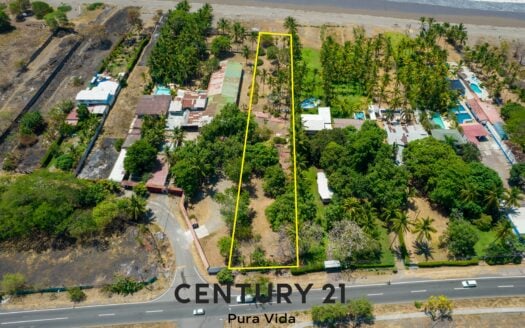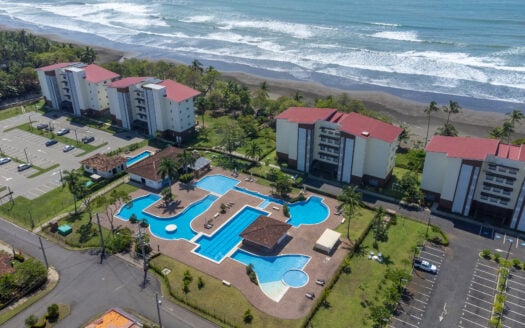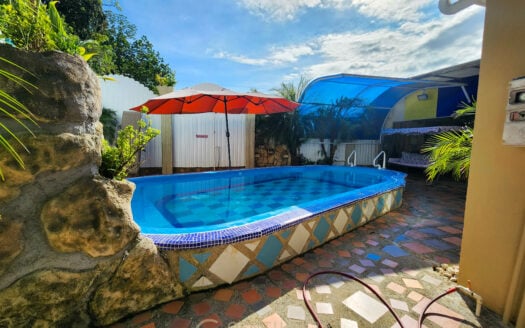If you’re looking for freedom and adventure, buying a home in Costa Rica could be the perfect opportunity! With its stunning scenery, vibrant culture, and welcoming locals, living here is like having your own piece of paradise.
However, navigating through the real estate market and legal process can seem daunting at first glance. That’s why we’ve put together this comprehensive guide on how to buy a house in Costa Rica. Read on to learn more about the market, the legal process, and tips for making a successful purchase.
Finding A Home Or Property
To get started, let’s take a look at the Costa Rican real estate market. Embark on your search for the perfect property – but where to start? Finding a home or property in Costa Rica can be both an exciting and daunting process. With the right resources, however, you’ll feel empowered to find your perfect piece of paradise.
Step 1 – Research and do an online query
Start by researching “Costa Rica homes for sale” online to get a better understanding of what is available on the market and what type of properties fit within your budget. Make sure to check out local classifieds and real estate websites that feature listings from all over the country.
Step 2 – Know your options
When it comes to buying a house in Costa Rica, there are many options to choose from. Depending on your needs and budget, you may decide to purchase a ready-made home or build your own custom home. Before making any decisions, it is important to understand the different types of houses available and the various costs associated with them. Alternatively, you can purchase a property with an existing structure and renovate or remodel it to your liking.
Step 3 – Gain insight into the general cost of various types of properties
Once you have identified potential properties, it’s important to understand all costs associated with purchasing them, including title insurance, fees, taxes, building permits, and other legal expenses related to ownership. Consider using a real estate agent who specializes in helping foreigners purchase property in Costa Rica.
Step 4 – Consider hiring professionals
Working with knowledgeable people will help simplify this part of the journey and keep things running without too many headaches! It is also wise to hire professionals such as surveyors and architects to assess the condition of any land or buildings before signing a contract.
Once you’ve identified the perfect property, it’s time to start the legal process of purchasing a house in Costa Rica. But before that, let us guide you through hiring the right professional to partner with during your search.

Hiring A Professional Agent
Hiring a professional agent to help you buy a house in Costa Rica is like having an experienced navigator guide your way through uncharted waters. It can make the search for, and purchase of, your dream home easier and less stressful. To find an agent that fits your needs, start by researching local real estate offices online or calling them directly.
Advantages
- Professional agents are knowledgeable about the purchasing process and regulations associated with buying real estate in Costa Rica.
- They can provide you with valuable insights into the local market and guide you through the entire buying process.
- Real estate agents may have access to exclusive listings that are not available to the public, increasing your chances of finding the perfect home.
- They can help you understand the closing costs associated with purchasing a property in Costa Rica and provide valuable advice on how to handle them.
- They assist with title searches and escrow agents.
- They are knowledgeable about property management services.
Disadvantages
- Professional agents often have a limited selection of properties at their disposal, which can limit your options and may make it difficult to find exactly what you’re looking for.
- Agents typically charge a fee for their services, which can add to your overall costs.
- Hiring an agent may result in more costs if no commission is earned from a sale.
Having professional assistance throughout the purchasing process will shorten timelines and ensure that everything goes smoothly. Your agent should also be familiar with the culture, customs, and laws of Costa Rica so they can offer sound advice on any issues which may arise during the transaction. They should also provide resources such as reliable property managers and legal representatives who can assist you after you complete the purchase.
With the help of a savvy agent, the labyrinth of purchasing a house in Costa Rica is a breeze! When choosing a person or team to work with, it is crucial to conduct due diligence. However, once you have found a suitable candidate, it provides a sense of relief to know that every step will be handled professionally and accurately.
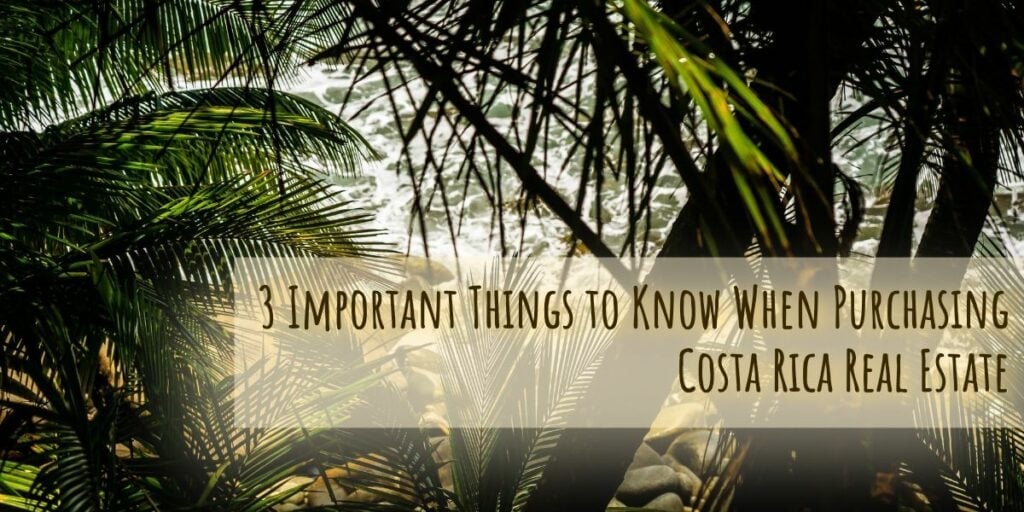
3 Important Things to Know When Purchasing Costa Rica Real Estate
Whether you are hiring a professional for assistance or not, it is important to be equipped with the most important knowledge that any investor should know about buying a house or property in Costa Rica.
1. Residency Requirements
If you’re thinking about buying a house in Costa Rica, it’s important to know the residency requirements. The number of expats residing in Costa Rica has increased twofold since 2007, so you won’t be alone in this endeavor.
To become a legal resident of Costa Rica under the investor category, you’ll need to invest at least $150,000 USD in a property in Costa Rica based on the current exchange rate. This is a significant investment, but it opens up many opportunities for those who want to make Costa Rica their permanent home.
The good news is that foreigners and locals have the same ownership rights when it comes to buying property in Costa Rica. Foreigners can buy property on a tourist visa without needing to apply for residency or citizenship. This makes buying a house in Costa Rica a relatively easy process for foreigners.
However, if you do decide to become a resident of Costa Rica, you’ll enjoy many benefits, including access to the country’s excellent healthcare system and lower taxes. You’ll also have the opportunity to participate in local politics and have a say in the direction of the country.
2. Location Considerations
When deciding where to buy a home in Costa Rica, it’s important to consider the location. Popular locations are beachfront properties and gated communities. These areas tend to have higher security features as well as access to amenities like shopping centers and restaurants.
It is also essential to do your research on market trends before committing to buying a house in Costa Rica. The sale price of properties can vary dramatically depending on the area and availability of nearby facilities such as schools and hospitals. It’s crucial to look into what type of services are available so you can make an informed decision about which property best suits your needs.
With careful consideration and knowledge about both popular locations and surrounding resources, finding your perfect piece of paradise should be relatively easy! Transitioning now into discussing types of property available provides further insight into this exciting journey toward homeownership abroad.
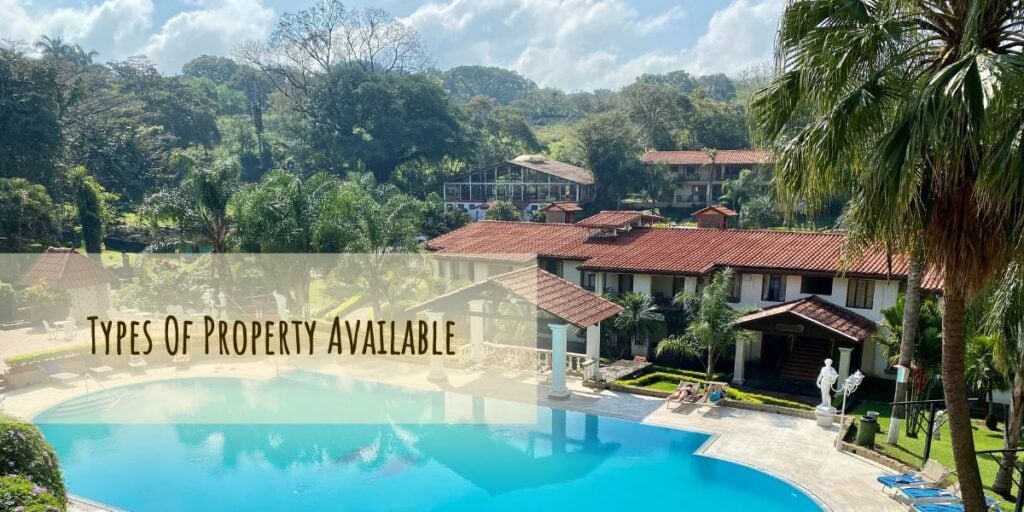
3. Types Of Property Available
When it comes to buying a house in Costa Rica, the options are plentiful. Whether you’re looking for a beachside villa, an apartment downtown, or something rustic off the beaten path – you can find it all! Let’s take a look at some of the different types of property available when purchasing real estate in this beautiful country.
- Apartments – Multi-family dwellings with communal areas
Apartments in Costa Rica are multi-family dwellings that typically have shared communal areas. These types of dwellings usually have multiple units within the same building, with each unit having its own individual entrance. Apartments tend to be a popular choice for those who want to live close to the city center, as they are often located in convenient locations. They provide easy access to public transportation and amenities such as restaurants and shops. Additionally, many apartments offer amenities like swimming pools and gyms, which can make them a great option for those looking for community living.
- Condos – Large or small complexes with shared amenities
Condos in Costa Rica are large or small complexes that typically have shared amenities such as swimming pools and gyms. These types of dwellings are a great option for those looking for community living, as they provide easy access to public transportation and amenities like restaurants and shops. Condos come in various sizes and can range from single-family homes to luxury high-rises. They also offer features like balconies, patios, and extra storage space depending on the unit you choose. Additionally, condos often feature communal areas such as parks or courtyards where residents can gather and socialize.
- Houses – Detached homes with private yards
A house in Costa Rica is typically a single-family home. Most houses come with their own garden and pool, perfect for relaxing and entertaining guests. Depending on the location of the property, some may offer ocean views, while others boast stunning landscapes from the mountains.
Inside, many of these homes feature unique furnishings and decorations such as handmade furniture, artworks, and artifacts from local artists. The size of the house will vary depending on your budget and preferences; however, it’s not uncommon for many to also include terraces for outdoor living space.
- Townhouses – Homes in a row, sharing common walls and sometimes common yard
Townhouses in Costa Rica are typically a row of homes that share common walls and sometimes a common yard. They provide a great opportunity for those looking for community living, as they are often located close to amenities such as restaurants and shops. Townhouses come in various sizes and can range from single-family homes to luxury high-rises. Inside, many of these homes feature unique furnishings and decorations such as handmade furniture, artworks, and artifacts from local artists. Some may also include terraces or balconies for outdoor living spaces. Townhouses usually offer shared amenities like swimming pools and gyms, making them a great option for those who want to take advantage of community resources.
- Fincas – Single-family homes on large lots of land typically located outside of urban centers
Fincas in Costa Rica is typically single-family homes on large lots of land located outside of urban centers. These types of dwellings offer plenty of privacy and seclusion, making them ideal for those looking to escape the hustle and bustle of city life. Fincas come in various sizes and can range from rustic cabins to luxury villas. Inside, many of these homes feature unique furnishings and decorations such as handmade furniture, artworks, and artifacts from local artists. Additionally, fincas often provide access to stunning landscapes from the mountains or ocean views. Outside, fincas may include terraces for outdoor living space, swimming pools, gardens, or even small farms depending on the size of the property
- Villas – Luxury detached houses and apartments
Luxury villas in Costa Rica are detached houses and apartments that typically offer luxurious features and amenities. These types of dwellings usually come with their own private pool, garden, terrace, and extra storage space. Inside, many of these homes feature unique furnishings and decorations such as handmade furniture, artworks, and artifacts from local artists. Additionally, villas often provide access to stunning landscapes from the mountains or ocean views. Depending on the size of the property, some may also include communal amenities like swimming pools and gyms. Villas offer a great opportunity for those looking for luxury living in a secluded setting.
When purchasing a house in Costa Rica, it’s important to consider the type of dwelling that best suits your needs and lifestyle. While apartments are ideal for those looking for easy access to public transportation and amenities, condos provide communal areas such as swimming pools and gyms. Houses offer privacy and unique furnishings, while townhouses provide shared common walls and yards. For those seeking a more rural setting, fincas offer plenty of privacy and access to stunning landscapes.
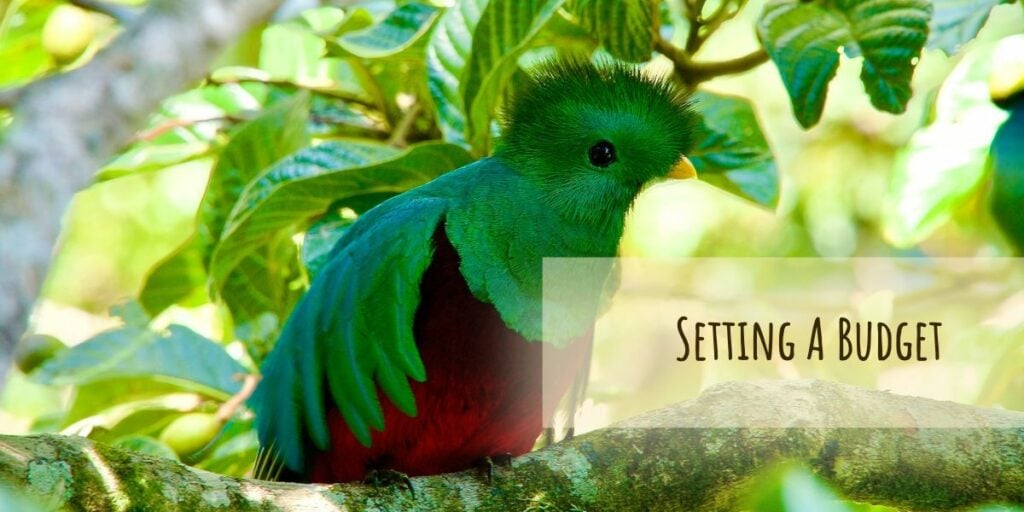
Setting A Budget
When it comes to buying a house in Costa Rica, setting a budget is essential. The actual purchase should always start with setting the budget and making your finances crystal clear. It’s important to understand the real estate investments you are making and know what kind of financial transactions you’ll need to make.
Consider the property taxes
First off, there is the luxury home tax which applies when purchasing any property valued over $215,000 USD in Costa Rica. The municipality will define the value of the property. The luxury tax will depend on the total value of the property construction. Prepare to pay between 0.25% to 0.55%.
If you buy concession land (land on the beach or near water), then additional fees may apply. In addition, the mentioned taxes are paid on top of the annual property taxes that range from 0.25-0.3% of your total purchase price depending on the province where your house is located.
Mortgaged or cash payment?
Another factor to consider when setting a budget is financing options like mortgages or cash payments – whichever works best for you financially should be taken into consideration before beginning with the buying process.
Professional costs
Additionally, hiring competent professionals such as lawyers and accountants for legal and fiscal advice is recommended as well since they will help ensure that all paperwork and contracts are properly filled out during escrow proceedings.
Closing costs
Lastly, don’t forget to factor in closing costs associated with acquiring title insurance and registration fees at the local municipality office post-closing. Knowing these upfront expenses ahead of time allows you to have clarity regarding how much money needs to be set aside prior to finding a home or property that fits within your predetermined budget range.
Evaluating Property Condition And Value
Next up is evaluating the value of the property. When buying a house in Costa Rica, it is important to evaluate the property’s condition and value. This can be done by conducting diligence checks with an estate agent or through research on your own. Here are some things to consider when evaluating a property:
1. Maintenance costs – The maintenance of the home should fit into your budget.
2. Sales Price – Make sure you are getting what you pay for and that the price is fair compared to similar homes in the area.
3. Potential legal issues – Be aware of any potential legal issues related to purchasing a home in Costa Rica.
4. Amenities – Consider if there is a community pool and other amenities included with the purchase of the home.
5. Living spaces – It is also essential to evaluate the living space offered by the house before making a decision. Check for sufficient storage, bedrooms, bathrooms, and kitchen space as well as the overall size of each room.
If possible visit multiple properties to compare them side-by-side so that you make an informed choice about where to buy. Once you have identified a few potential houses, review their structure and features carefully while keeping these considerations in mind. With careful examination and due diligence, you will find yourself closer to finding the perfect place for your dream life abroad!
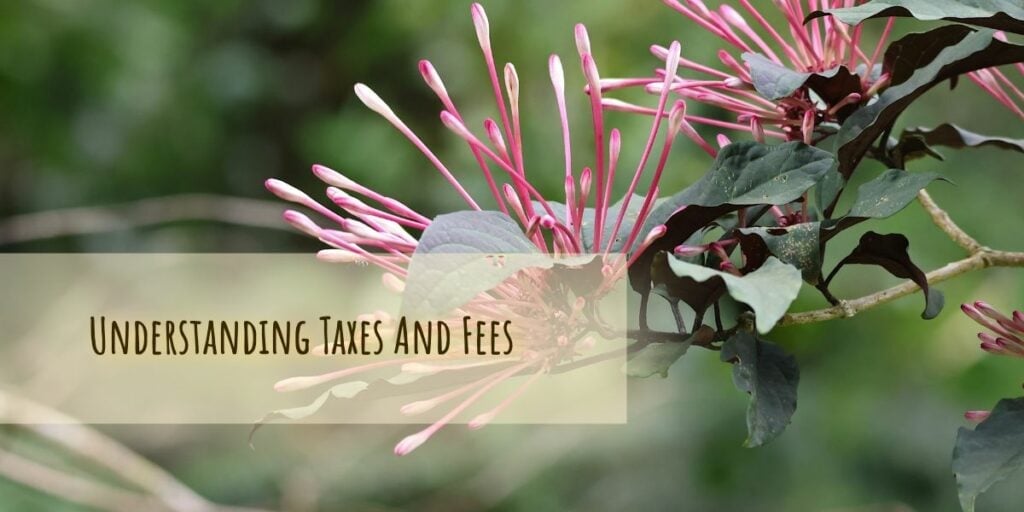
Understanding Taxes And Fees
We can’t reiterate more, it is important to understand property taxes in Costa Rica. As the property search continues, it’s important to understand the taxes and fees associated with buying a house in Costa Rica.
While many people are drawn to the country for its laid-back lifestyle and stunning scenery, there is an array of other costs that come with purchasing real estate. According to a recent survey by the National Registry of Land Ownership, more than 70% of all purchases involve additional tax payments or notary fees. With this in mind, potential buyers should plan ahead and research what they need to know before making any commitments.
Finally, when looking at taxes specific to owning property in Costa Rica, it’s wise to remember that income generated through rent counts towards annual income tax; so keep careful track of rental income receipts throughout the year! As different municipalities have their unique regulations regarding taxation thresholds applicable here too – it pays (literally) to do some research upfront before committing yourself long-term financially via purchasing a property in Costa Rica.
Banking and Escrow
The first step when looking into taxes and fees is setting up bank accounts in Costa Rica. This will be used for transferring money related to the purchase price as well as paying ongoing expenses such as maintenance and insurance premiums. Additionally, you may want to consider using an escrow company that works with both buyer and seller to ensure funds are secure throughout the process.
With this information in mind, you can approach negotiations for the property price with confidence.
Negotiating The Offer Price
When it comes to buying a house in Costa Rica, the average cost for single-family homes can be quite high. That’s why it’s essential to do your research and negotiate the best possible offer price before you commit. This will ensure that you get the best return on investment, while also giving you an opportunity to purchase concession property or prime locations at a discounted rate.
One thing to keep in mind is that most foreign banks are not equipped with local knowledge when it comes to dealing with real estate transactions in Costa Rica. Therefore, if you plan on taking out a loan from these institutions, then you should make sure they understand every aspect of the process involved. Additionally, hiring a reputable lawyer who specializes in international law may help provide additional protection during your buying experience.
Next, there are various tactics used by experienced buyers when negotiating an offer price; such as submitting multiple offers simultaneously or having someone else submit the offer instead of yourself directly. It’s important to remember that all negotiations must adhere to the country’s legal framework; meaning certain fees and taxes might apply depending on your situation.
Finally, once both parties have agreed on terms, then it’s time to draw up and sign the contract – ensuring everything is written down properly to avoid any misunderstandings further down the line. With this done, obtaining financing for your new property becomes much easier!
Obtaining Financing
Obtaining financing for house purchases in Costa Rica is similar to any other country, with local and international lenders available. For many buyers, the entire process can take up to six months from start to finish. Prospective purchasers must understand their personal liability before buying a home in this Central American nation.
It’s common practice for banks or mortgage companies to require a holding period of three years before selling the property; however, it isn’t always necessary if you have ample living funds to cover your down payment and closing costs. Additionally, many banks will accept a promissory note as collateral on some purchases instead of hard cash.
To help guide potential homeowners through the financing process, having an administrative assistant familiar with Costa Rican law can make all the difference between success and failure when seeking out funding options. These individuals are trained professionals who can provide advice and assistance in navigating the complexities of obtaining mortgages in Costa Rica.
Making such financial decisions should be approached cautiously but also taken advantage of due to how simple owning real estate here has become over recent years. From tax incentives to ease of ownership laws, there are plenty of benefits waiting for those brave enough to invest in purchasing a new home abroad.
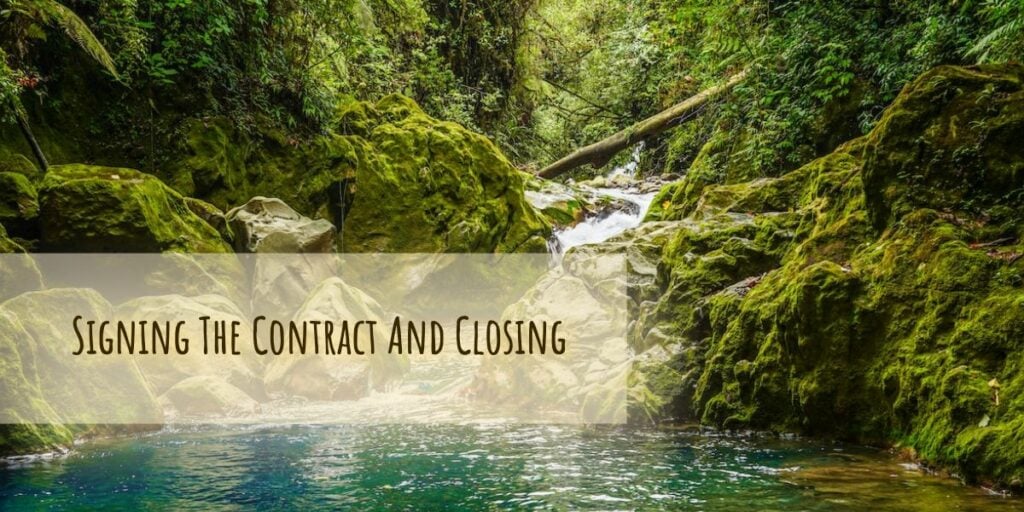
Signing The Contract And Closing
Now that the financing has been arranged, it’s time to sign the contract and close on your dream property in Costa Rica. Whether you are looking for a commercial property or an exotic beachfront villa with tennis courts, make sure that all of the paperwork is in order before signing. Here are some tips to help ensure that everything goes smoothly during this stage of buying a house in Costa Rica:
Tip #1 – Be aware of any local laws that may affect the purchase agreement.
The last thing you want is to be caught off guard by unexpected taxes or fees associated with your new home. Also, confirm whether there will be any additional costs due at closing such as attorney’s fees or title insurance premiums. Be sure to review these details thoroughly before signing anything so you can avoid unpleasant surprises later on down the road.
Tip #2 – Take the time to read through every clause of the contract carefully and ask questions if something isn’t clear.
You should also have an independent lawyer review all documents prior to signing them just to be safe! This way, you’ll know exactly what rights and obligations come along with owning a property in Costa Rica and won’t get taken advantage of by unscrupulous land agents or brokers.
Tip #3 – Remember that once you’ve signed the contract, you cannot back out without incurring penalties unless there was an error made by either party involved in the transaction.
Make sure you understand all terms and conditions laid out in writing and only agree if they seem reasonable – otherwise it could cost you dearly later on! Consider hiring a real estate agent who specializes in international transactions; they can help guide you through each step of the process from start to finish and provide invaluable advice when needed.
With proper preparation and research, obtaining ownership of your piece of paradise should now be within arm’s reach – making way for tackling another important aspect of purchasing property abroad: insurance requirements
Insurance Requirements
Purchasing a property in Costa Rica may appear daunting, however, with proper guidance, it can prove to be a fulfilling endeavor. When investing in Costa Rica, it is recommended to consider certain types of insurance for protection.
When purchasing a home in Costa Rica, it’s important to understand the insurance requirements. Unlike in the United States, specialized insurance is not required for natural disasters and fire damage in Costa Rica.
Coverage V and D
Instead, natural disaster and fire coverage are combined into coverage V which accounts for real estate damage caused by fire and hurricanes. Coverage D is also included in natural disaster coverage and accounts for damage caused by floods and earthquakes. This is important to consider because Costa Rica is susceptible to these types of natural disasters due to the different types of environments found in the country.
Coverage Y
Contents coverage, also known as coverage Y, is another aspect of insurance that should be considered when purchasing a home in Costa Rica. It covers all of your valuables in one policy, ensuring that they are all protected. However, high-valued items such as jewelry or family heirlooms may require specialized coverage.
Coverage K
Homeowners liability insurance is not required, but it’s a good idea to have it to cover any accidents that may happen on your property. This type of insurance, also known as coverage K or civil liability insurance, can cover medical expenses for anyone injured on your property, as well as accidents and pet attacks.
When renting out an apartment, rental property insurance is optional but highly recommended in case of any damage caused to tenants’ belongings or injuries sustained while at the property.
Homeowners liability coverage is not legally mandated but still advisable since it protects against third-party claims stemming from accidents occurring on your premises.
For those living in rented spaces or condominiums, homeowners association coverage is necessary. This coverage can help ensure the costs associated with using shared facilities such as workout rooms or pools, as well as building security. It’s important to note that insuring the contents within your rented space is your responsibility and not covered by homeowners association coverage.
Understanding the insurance requirements when buying a house in Costa Rica is important to protect your investment and ensure that you are covered in case of any unexpected events.
Before closing a deal on a house in Costa Rica, understanding these various types of insurance will help eliminate potential issues down the road and provide peace of mind knowing that both you and your investment are protected should anything unexpected happen. With this knowledge under your belt, now let’s explore post-closing processes.
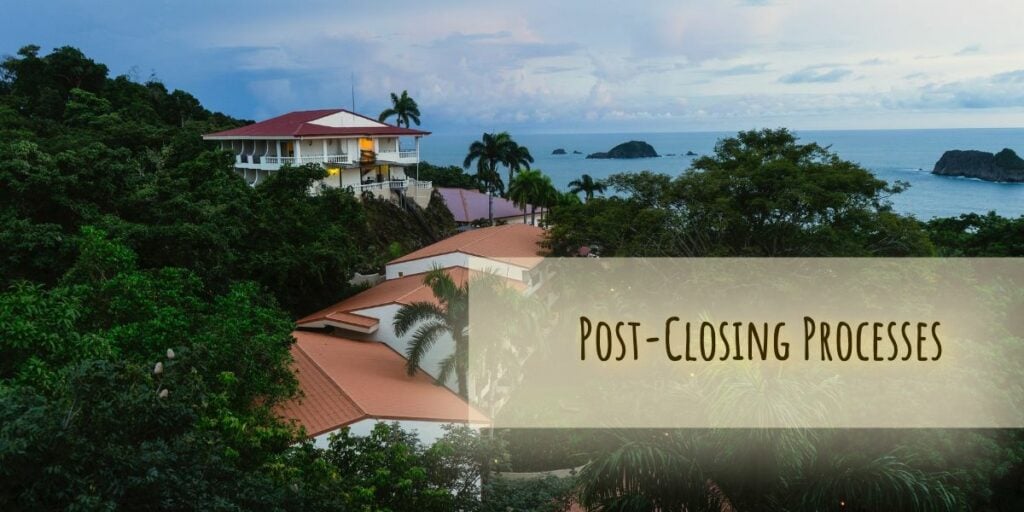
Post-Closing Processes
Once you have completed the purchase of a home in Costa Rica, several post-closing processes must be addressed. It is important to understand these steps so that you can move on to living your life as a homeowner in this beautiful country!
Residency
First, it is necessary to obtain residency status if you plan to stay in Costa Rica for more than 90 days. This process is simpler for those who hold a foreign passport from countries such as Panama and Honduras, but all others will need to apply through the appropriate channels. Here are some key points about obtaining residency:
- You may choose between permanent residency or temporary residence depending on your plans
- Documents required include birth certificate, marriage certificate (if applicable), criminal background check, and financial statement detailing assets/liabilities at the time of application
- The application fee varies based on nationality and length of the desired residency
- Processing times vary widely ranging from 2 weeks to 6 months or longer
Registration of vehicles and registering as a homeowner
You should also consider registering any vehicles purchased along with the house into your name. This requires visiting an approved vehicle inspection station and presenting paperwork including proof of ownership and a valid insurance policy.
Additionally, it’s beneficial to register yourself as the owner of the property at the local Municipality office where they will issue a tax number which must then be used when paying taxes associated with owning real estate in Costa Rica.
Utilities
Many homeowners opt for setting up utilities such as water, electricity, and telephone/internet service before moving into their new home. Depending on what services are available in your area you may use one provider or multiple providers for each type of utility. Be sure to ask questions regarding start-up fees and monthly costs before signing contracts for any services – knowing how much money you’ll need ahead of time can help avoid unnecessary surprises later
Health care
And lastly – don’t forget about finding adequate health care coverage. Private medical insurance plans offer greater flexibility than public options; however, they come with higher premiums too. Before deciding upon one option over another make sure research has been done so that no stone remains unturned
Settling into a new home in Costa Rica allows for the opportunity to fully experience all that the country has to offer.
By following these steps there should be no reason why moving in and settling into life in Costa Rica cannot go smoothly – freeing yourself up to enjoy living by the Caribbean Sea sooner rather than later!
Frequently Asked Questions
What is the average cost of a house in Costa Rica?
The price range varies depending on location, size, and amenities; however, according to a real estate market analysis from 2019, the median selling price for a single-family home was about US$220K (CRC1.8M). If you’re looking for something more modest – say an apartment or condominium – then those sell at an even lower median rate of around US$150k (CRC1.2m).
When buying a house in Costa Rica, one factor worth considering is how much land comes along with it. In general terms, buyers should expect to pay extra if they want larger grounds included with their purchase as this tends to increase the overall value significantly – especially when located within close proximity to popular tourist areas such as Manuel Antonio National Park or Arenal Volcano National Park. Furthermore, most properties come unfurnished unless otherwise specified by the seller; thus it may be wise to take into account any additional costs associated with furnishing your new abode once bought.
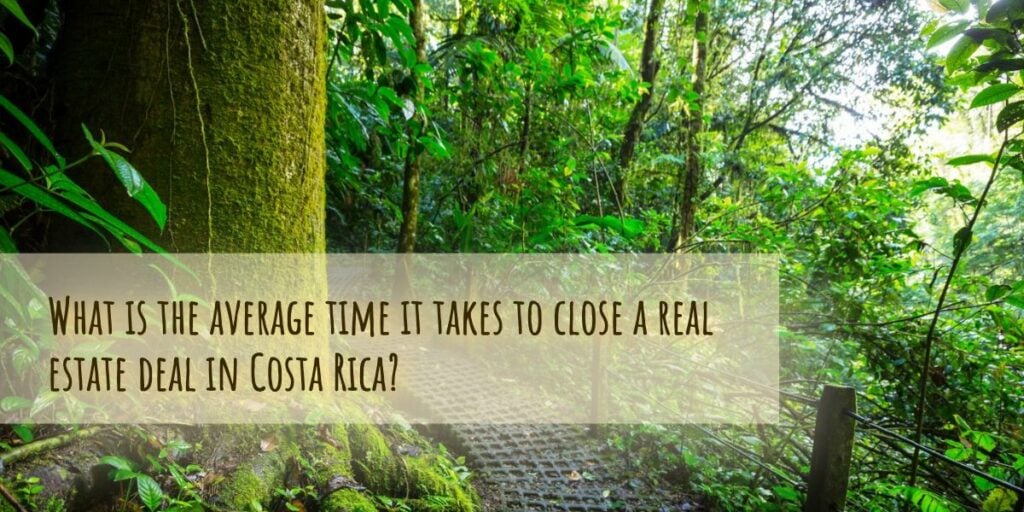
What is the average time it takes to close a real estate deal in Costa Rica?
When considering purchasing property in Costa Rica, the first step is to determine the timeframe for securing your new home. Generally speaking, the amount of time required to close on a residential sale will vary from one situation to another. Factors such as the type of property, location, financing options, due diligence requirements, and other administrative issues should all be taken into account when estimating how long it may take.
In general, however, it takes between four and six months to secure title insurance and complete all documents necessary for closing on a residence in Costa Rica. This includes obtaining bank approvals if you are using financing and registering with local government offices or getting permits if renovating or constructing on purchased land. It also requires researching ownership rights before signing any final contracts which could lead to further delays. Additionally, some buyers prefer to hire legal counsel who can help ensure that all processes are followed correctly to avoid any potential problems after closing has been completed.
Conclusion
Purchasing a house in Costa Rica can be an exciting and rewarding experience. It’s the perfect way to enjoy all that this beautiful country has to offer. With careful consideration, planning, and research, buying a home here can become reality for those looking for their own slice of tropical paradise.
Costa Rica buying property is a fulfilling endeavor despite the hard work. Yes, certain restrictions and considerations should be taken into account to be successful. From understanding the legal fees involved to researching potential locations and working with a reputable real estate attorney, taking the necessary steps can help ensure that you make the best decision when investing in the Costa Rican property market. With careful planning, research, and safety measures, your dream Costa Rica property can become a reality. So go ahead – pack up your bags and embark on an exciting adventure that awaits you here! You won’t regret it; after all, who wouldn’t want to call this place home?


